What is the conventional way to express in a docstring the expected types of keyword arguments?
Or is this out of principle something I should not be doing at all? Google is suspiciously un-forthcoming on the subject.
(I am interested in doing this because I find that keeping track of expected types of all variables is very helpful as I code. I use PyCharm, which warns me when arguments have unexpected types, or when custom class attributes may be unresolved etc.)
However, I am finding that sometimes the list of possible keywrord arguments listed as
def foo(bar, parameter_1: int=1, paramter_2: str='', ...etc )
can become long and unreadable..
Consider the following code
class Person:
def __init__(self, id: int, **kwargs):
"""
:param id: social security number
:type id: int
:param **name: person's first name
:type **name: str
:param **age: person's age in years, rounded down
:type **age: int
"""
self.data = kwargs
bob = Person(123456568, name='Bob', age=48)
sally = Person(1245654568, name='Sally', age='22')
I would like to use the docstring to state the expected types. And I would like PyCharm to warn me that sally's age has the wrong type. Of course, I don't know if PyCharm even has the capacity to 'understand' that level of detail in the docstring. Nevertheless I'd like to know what the conventional way to do it is.
Other comments and suggestions about kwargs and docstrings also welcome.
